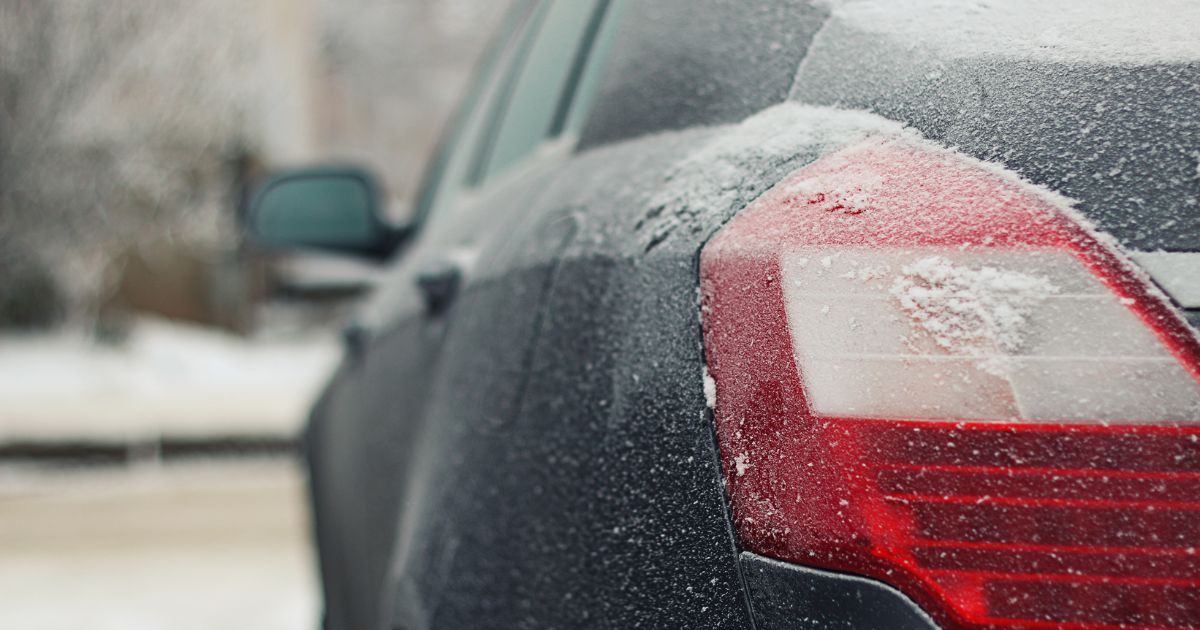Ohio is one of the most dangerous states for winter driving. If the Farmers’ Almanac is correct, winter is going to be colder and snowier than usual in Ohio this year. Higher-than-average snowfall is expected throughout Jan. into early March. Now is the time to prepare your vehicle for freezing temperatures and icy roads. Here is a checklist to winterize your car to keep it running smoothly and safely all season long.
Brakes
Well-maintained brakes are essential for navigating cold, snowy Ohio winters. We recommend checking them at the start of every season or anytime you hear grinding in the front or rear wheels as you apply the brakes.
Battery
Cold temperatures tax the battery’s power. Test your battery charge at the start of winter and throughout the season. It is wise to replace the battery around the six-year mark.
Transmission
Cold weather can thicken transmission fluid which can damage the transmission and cause problems shifting while driving. Use the right fluid for your vehicle, replace fluid as needed, and let your car warm up before putting it in drive to keep your transmission working properly.
Tires
Winter tires or high quality all-weather tires are best-suited for the snowy weather. Check for properly inflation at the start of the season, and inspect tires for excess wear and tear often.
The United States Department of Transportation recommends replacing tires if they reach 2/32 of an inch. An easy way to check is to place a penny with Lincoln’s head facing down between the ribs of your tire. The top of his head should disappear between the ribs. If you can see any part of his head, you probably need to replace the tire.
Antifreeze
Antifreeze keeps water in the engine and radiator from freezing over in low temperatures and evaporating in warmer weather. It is critical for proper function of your vehicle all year round. Check to make sure you have enough antifreeze and that it is properly mixed with water (equal parts of each if you are not buying it pre-mixed.)
Lights
The ability to see the road and be seen by others is critical in poor weather. Test the daylight-running lights, high-beams, taillights, and turn signals to ensure they are functional. Clean, repair, and replace lights as needed.
Windshield Wipers
If you have ever been caught in the rain or snow when a windshield wiper fails, you know how stressful or dangerous it can be to drive without good visibility. Before winter arrives, inspect wipers and blades for damage. Wipers need to be replaced if they fray, get stuck, or move back and forth without removing water and snow.
Exhaust
A faulty exhaust system poses an enormous risk, as it can leak deadly carbon monoxide into the vehicle’s cab. If you place a rag over the tailpipe and notice a hiss, you may have a leak that should be checked out by a professional.
Climate Control
The climate control system keeps the vehicle running at a safe and comfortable temperature. If your vehicle does not seem to get warm enough, or your windows are not defrosting, take your car to a mechanic for repairs.
Pack a Winter Emergency Kit
Even if your vehicle is running as smooth as the day you drove it off the lot, you cannot guarantee you will not get stuck in traffic or be involved in an accident. Every vehicle should have a basic safety kit on board in case of emergencies.
A winter safety kit should have the following:
- Fresh water.
- Non-perishable snacks.
- Warm blankets.
- Hats, gloves, and scarves.
- Portable phone charger.
- First-aid supplies.
- Flares.
- Jumper cables.
These essentials will help keep passengers safe and warm until help arrives.
Tips for Driving This Winter
Here are some important driving tips for the winter:
- Slow down in poor weather conditions. Always reduce your speed by at least 10 miles below the posted speed limit to compensate for lower traction and poor visibility when driving in snow or on ice. To stop with anti-lock brakes, press firmly down on the brakes and keep your foot there while steering in the right direction. For vehicles with non-anti-lock braking systems, gently and gradually pump the brakes to reduce speed.
- Keep a safe following distance. Add a few seconds to your following distance in bad weather, regardless of your speed. On icy roads, you need more time and space to stop. If you do skid out, you are less likely to collide with another vehicle if you are following further behind them.
- Steer out of a skid safely. In a skid, try not to panic or overcorrect. Instead, take your foot off the gas and brakes. Focus on the direction you want to travel, and slowly turn the wheel in that direction. Once the vehicle is under control, straighten the wheel and resume driving as usual.
- Clean off your vehicle before you drive. Give yourself plenty of time to remove ice and snow from your vehicle before you hit the road. Not only will a snow-covered car make it harder for you to see the road and other drivers to see you, but other motorists and pedestrians can be seriously injured by chunks of ice and snow that fly off your car. Do not stop at the windows. Make sure your headlights, taillights, turn signals, and mirrors are clean before you begin your trip.
Every driver has a duty to safely maintain and operate their motor vehicle. Motorists who cause accidents by careless driving may be liable for damages. Compensation through an auto insurance claim or personal injury lawsuit may be available for injured individuals facing medical bills, lost income, and other losses after a crash. A consultation with a lawyer is the best way to learn your legal options.
Loveland Car Accident Lawyers at the Wolterman Law Office Represent Clients Who Have Been Injured in Wintertime Accidents
Our Loveland car accident lawyers at the Wolterman Law Office offer free initial consultations. We can assess your case, explain your options, and advocate for you if you have been injured in a winter-related accident. Call us at 513-488-1135 or contact us online today. Located in Loveland, Ohio, we serve clients in Hamilton County, Fairfield, Norwood, and Forest Park.


